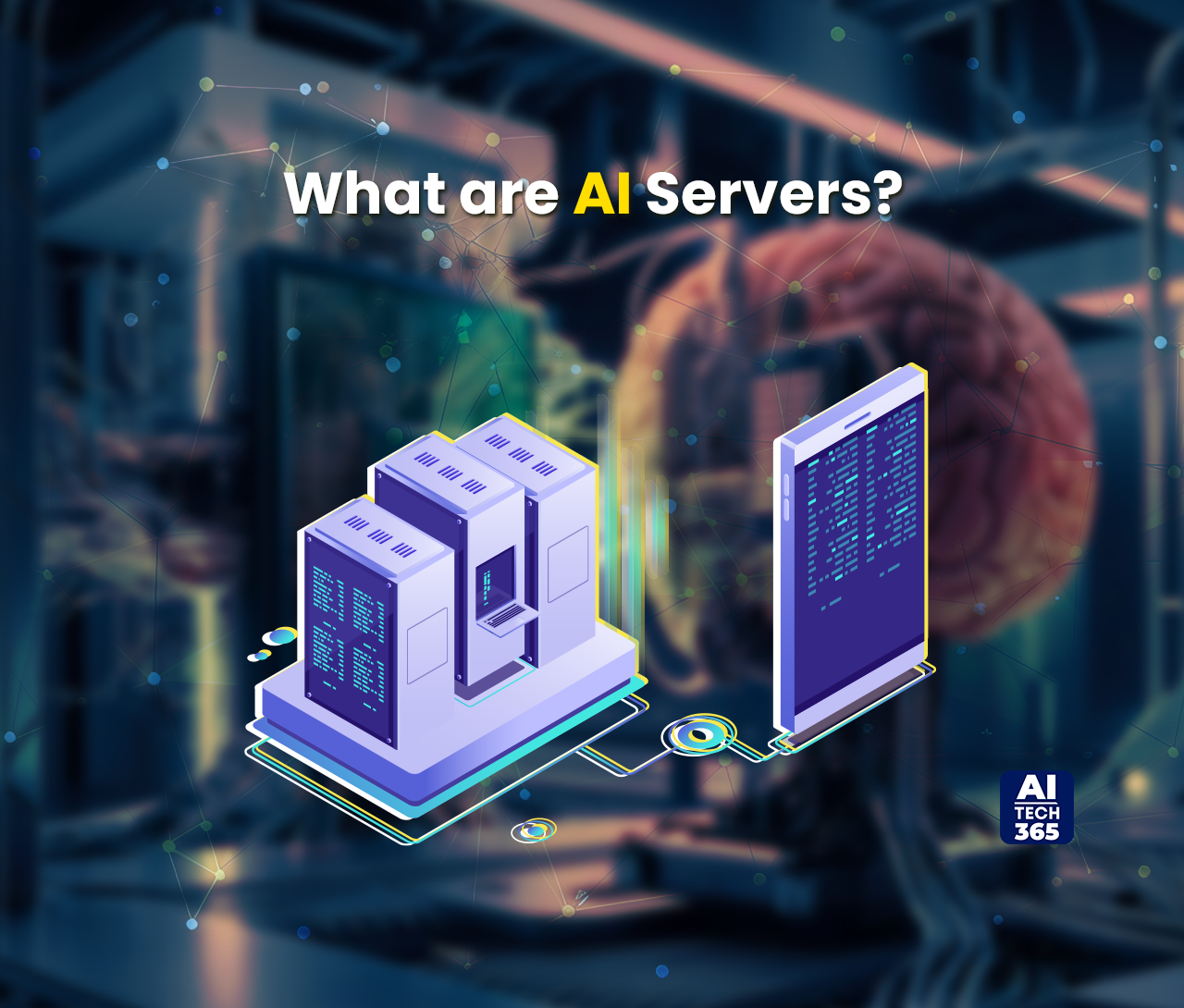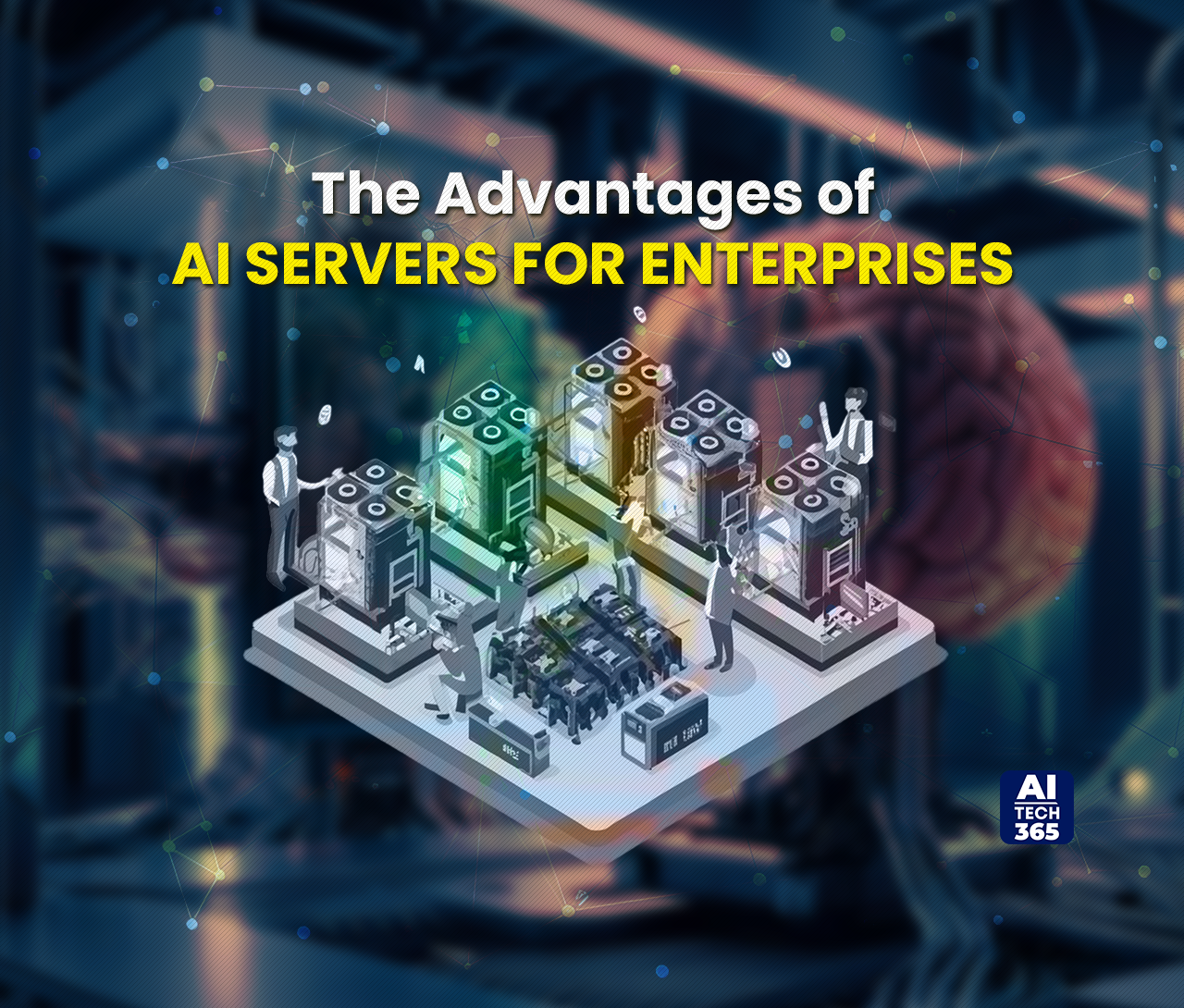Irrespective of the type, industry, or sector of the organization, decision-makers are seeking opportunities to embrace artificial intelligence (AI) in their enterprise tech stack to improve their operations. AI servers are playing a pivotal role for organizations that want to integrate AI applications into their IT infrastructure without having complex on-premises AI infrastructure. This blog explores the definition of AI servers and their benefits to enterprises.
What are AI Servers?
Specialized computing systems developed to manage innovative needs of artificial intelligence (AI) workloads are referred to as AI servers. Compared to legacy servers that are developed to execute general-purpose computing tasks, these AI servers are developed to execute high-performance AI application demands. These servers inherently have cutting-edge hardware components like high-speed memory and robust graphics processing unit (GPU) chips, which allow them to process a massive amount of data quickly and efficiently.
The Importance of AI GPU Chips
AI GPU chips are at the core of AI servers, which have the capability to execute complex computations needed by AI applications. Deep learning and machine learning (ML) tasks can be accelerated with these GPUs, offering the computational power required to quickly and efficiently train AI models.
NVIDIA H200 Tensor Core GPU provides unexceptional performance and flexibility to execute all the tasks around AI and data analytics. The H200 assists a vast range of applications including model training to interference, and has advanced functionalities such as multi-instance GPU (MIG) technology enabling independent operations of multiple networks on one GPU, enhancing resource utilization, and increasing the throughput.
Also Read: 5 Major Challenges AI Solves in 2024 & Beyond
The Advantages of AI Servers for Enterprises
For enterprises seeking opportunities to integrate AI into their business network, AI servers can be a robust tool that drives transformation. It offers the computational capabilities required to execute sophisticated AI algorithms and process massive datasets in real time. These capabilities are essential to execute applications, including offering bespoke customer experiences, real-time decision-making, and predictive analytics. Enterprises that invest in AI servers will get access to the infrastructure required to assist their AI initiative and get a competitive edge in the AI-driven industry.
1. Improved Processing Power and Efficiency
One of the key advantages of AI servers is their improved processing capabilities and efficiency. Legacy servers usually face challenges with the high computational power of AI applications, which results in slowing the processing times and minimizing productivity. AI servers integrated with robust GPUs and specific processors are developed to manage complex workloads. As a result, businesses can achieve their AI objectives faster and more efficiently because of the quick data processing and analytics capabilities.
2. Scalability and Versatility in Managing AI Workloads
Enterprises can improve their AI capabilities as per their needs, as AI servers provide unparalleled scalability and flexibility. It is a perfect solution for enterprises seeking to scale their AI capabilities without having to face significant infrastructure bottlenecks. Irrespective of what stage your organization is in embracing AI applications, AI servers are an ideal solution for businesses to get the versatility required to adjust resources and scale their operations effectively. It is an efficient way to future-proof your business network with AI applications.
3. Minimized Latency and Quicker Decision-Making Capabilities
The capabilities of AI servers to make fast, informed decisions offer businesses a competitive edge in the rapidly evolving technology landscape. AI servers minimize latency and enhance response times to seamlessly process and evaluate data in real-time. This real-time processing capability is required for predictive analytics, detecting fraud, and offering tailored customer interactions. By using AI servers, organizations can make quick, informed decisions based on data to improve operations, client satisfaction, and overall efficiency.
4. Enhanced Data Management and Analytics
AI servers are developed to manage huge volumes of data effectively, making it an ideal solution for businesses that depend on data-driven decisions. Its abilities include high-speed memory and advanced processing, which allow enterprises to store, access, and evaluate data accurately. Such enhanced data management capabilities are specifically beneficial for training machine learning models, big data analytics, and complex simulations. Leveraging AI servers enables organizations to get in-depth insights from the data gathered, resulting in more informed decision-making and strategic planning.
5. Enhanced AI Workflows and Productivity
AI servers simplify and enhance AI operations, improving overall performance. Enterprises can free up the workforce time to focus on other crucial operational tasks. These intensive computational tasks are executed by specialized software and hardware to reduce the workload on the resources. As a result, businesses can have more effective AI development cycles, deploy AI models faster, and enhance overall performance. There are a few energy-efficient components of AI servers that have lower operating costs, making it an affordable solution for AI-driven organizations.
6. Security and Dependability
Dependability and security are crucial factors for any organization, particularly when they deal with sensitive information. AI servers are developed with robust security functionalities and architectures to have data integrity and system dependability. AI servers provide security against cyber attacks and reduce the risks of data breaches, offering enterprises the confidence required to securely deploy AI solutions. The dependability of AI servers can result in lower downtime and better availability to ensure that AI applications run seamlessly and consistently.
Wrapping Up
The future of AI servers and AI computing is promising, with many upcoming advancements set to boost their capabilities and influence. By keeping up with emerging trends and investing in the latest technologies, businesses can position themselves to harness AI for innovation, efficiency, and growth.


